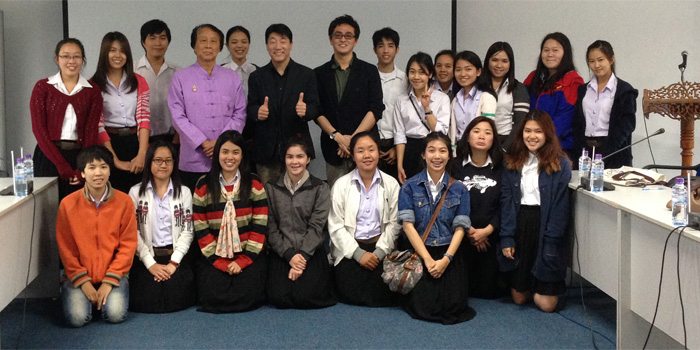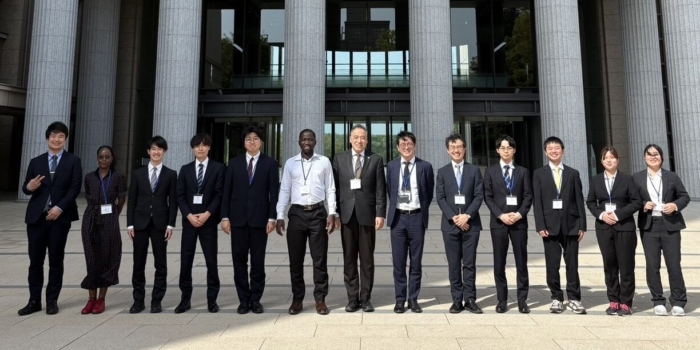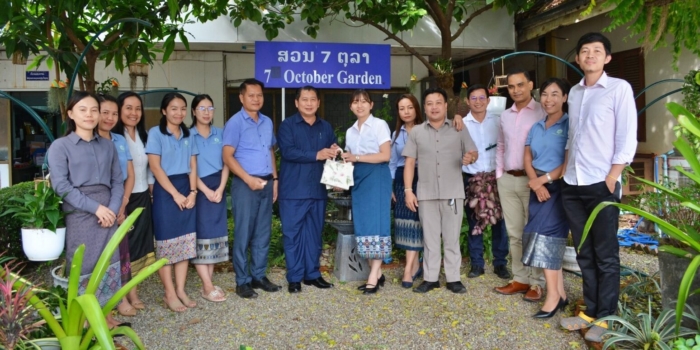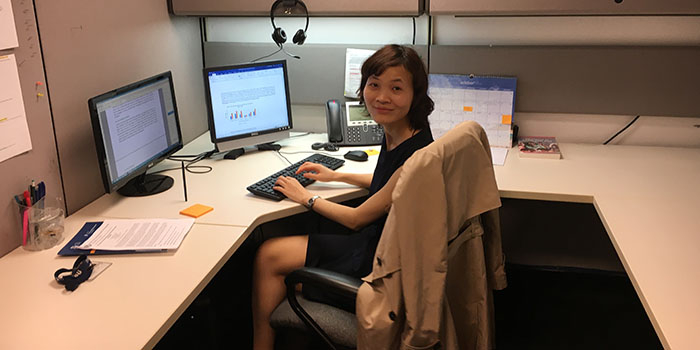Purpose of my advanced overseas research is to develop my dissertation proposal, to visit schools and boards of education in Chiang Mai, Thailand and to participate in the workshop, held in Vientiane, Lao PDR,which aimed to review the guidebook of education finance and administration for ASEAN countries..
In Chiang Mai, with kind supports of Prof Annop Pongwa and Prof. Phetcharee Rupavijetra from Chiang Mai University, I had an opportunity to learn more about teacher training system and education administration practices. This visit to Thailand may not seem to have direct link with my research interest which is issue of inequality of educational opportunities in Sub-Sahara Africa. However, it was great to see practices and delivery of educational service in different region and get deeper understanding about the difference and commonalities between two regions. Indeed, the level of economic development and cultural context are different in two regions. Nevertheless, the emerging issues in education can be shared in many aspects. For example, Thailand faces challenges in integrating ethnic minorities and multi-cultural education in North region. Unbalanced deployment of qualified classroom teachers within a county is also common issues in Vietnam, Laos, Cambodia, and Thailand. A deployment issue of qualified teachers and remaining unreached group in education can be seen in Sub-Sahara Africa as well.
Strictly speaking, it is difficult to develop a conceptual framework of comparative studies between two regions. But the common issues identified in these regions during my advanced overseas research convinced me that I was on the right track: there exists under-performing students of minority groups and student’s family background factors play a significant role (especially parent’s attitude toward education) in both regions.
In Laos, the workshop I attended was a part of a project, funded by Ministry of Education, Culture, Sports, Science, and Technology (MEXT)-Japan and led by Prof. Ogawa in Kobe University. In the workshop, we had discussion with education specialists from UNESCO Bangkok, government officials from ministries of education in Vietnam, Laos, and Cambodia on how to improve the draft of the guidebook on education finance and administration for ASEAN countries.My participation in the workshop not only inspired my motivation for future research in this area but also expanded by professional working experience in international development in education. Our field is required to work closely together with practitioners. Therefore, our research output and directions should be easy-to-understand and also applicable in real world. As a co-author of the guidebook, I wrote a chapter on cost-benefit analysis, but the contents were too theoretical to use in local context. Feedbacks and comments we received from policymakers made me realize that it is very important to balance theories and practices.
It was my great pleasure to visit Chiang Mai and Laos,meet lots of nice people and learn about how the project is implemented. The project of developing a guidebook on education finance and administration is very innovative and I believe it is one of the leading projects in this region. I am honored to participate in this project as one of the core team members. Finally, I really thank Prof. Ogawa to give me many wonderful opportunities.
Related






